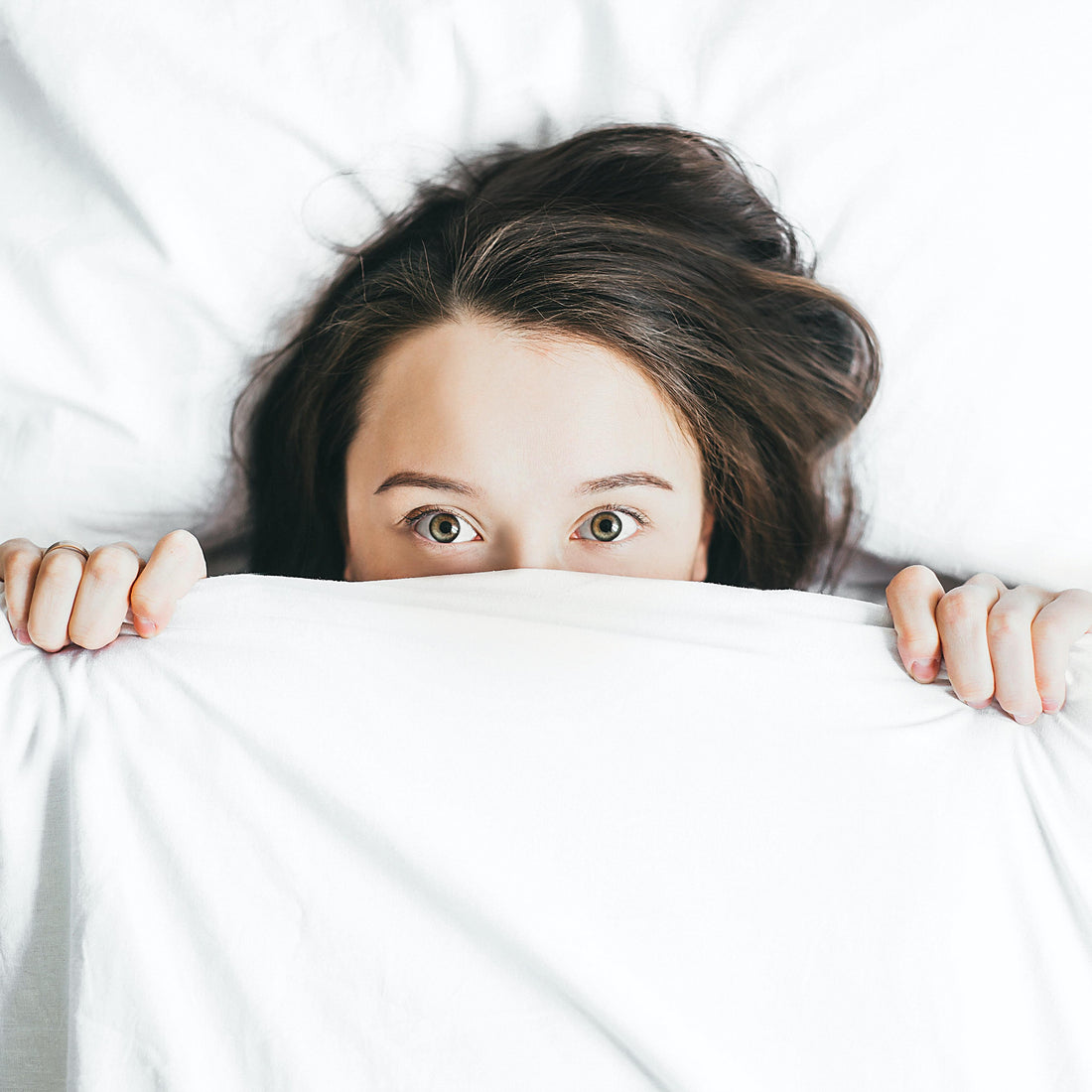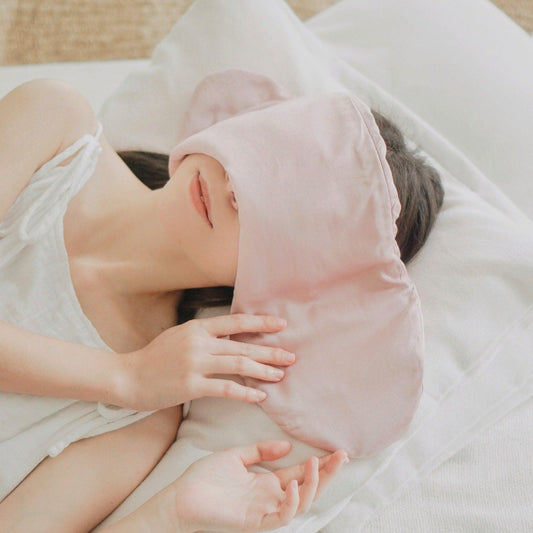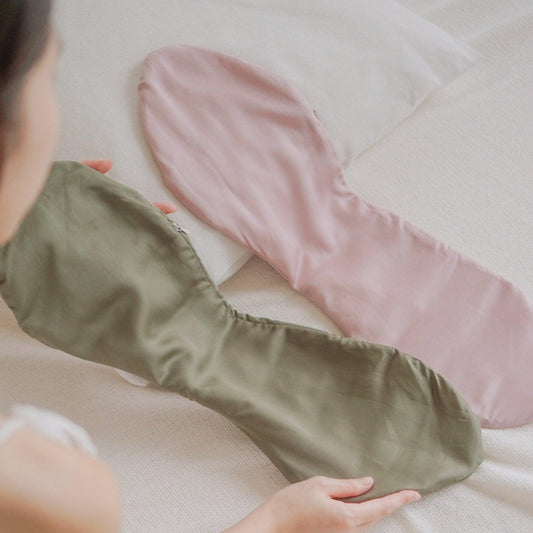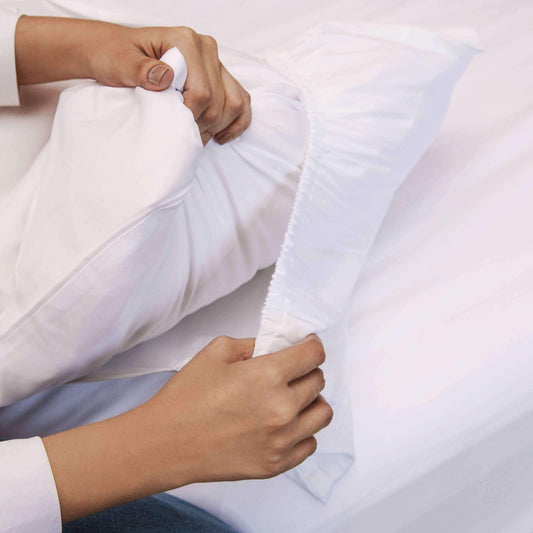
Get rid of acne with these 50+ tips
Share
Finding an acne treatment that works for you is always a challenge. You’ve probably tried every serum, toner, and facial wash out there. Before you get even more overwhelmed by the number of anti-acne products on the shelves, it’s better to understand what causes your breakouts in the first place.
You might have thought that you could finally say good riddance to acne after your teen years. Unfortunately, acne doesn’t end the same time the high school does. But don’t worry, you’re not alone. Many men and women suffer from hormonal acne.
Keep reading to learn all about acne, including its types, causes, remedies, and good anti-acne habits you need to start practicing ASAP. Bye-bye to stubborn breakouts!
Why you should take care of your skin
Our skin is the largest organ in our bodies. It’s the barrier that stands between the outside world and your organs. It maintains the moisture balance of our circulatory system. We owe a lot to our skin, yet some of us tend to forget to take care of it.
Even if our skin looks radiant today, there’s no guarantee that we’ll look glowing forever. Every day, we produce dead skin cells that will cause clogged pores, which will cause acne. You might think, “How can I get acne? I’m way past high school.” The thing is, some adults can get acne up until their forties. In women, it’s possible to get acne in pregnancy and during menopause. As much as we’d love to say goodbye to acne forever, it’s just like a pimple we can’t seem to pop.
- Our skin is different
Some people won’t break out even if they just splash water on their faces before going to bed. Others need the whole skincare set, complete with toner, cleanser, moisturizer, and even more! Everyone’s skin is different, which means not every skincare routine will work on everyone. There’s no one-size-fits-all way to keep your skin looking good. If you don’t know your skin type, it’s important to find out before hoarding on skincare products at Sephora.
- Prevention is easier -- and cheaper
Doing things like exfoliating your face a few times a week and avoiding certain foods that cause acne will save you from invasive treatments in the future. Keeping your skin smooth and acne-free requires making smart choices like not touching your face. If you neglect your skin, you might be seeing yourself at the clinic years from now, waiting to get your acne scars surgically removed. And FYI, acne scar treatments can cost as much as $2,000.
What causes acne?
Acne commonly appears during one’s teen years when someone goes through puberty. Acne that occurs after the age of 25 is called adult acne or post-adolescent acne. The same reasons that directly cause acne in teens are at play in adult acne, like excess oil produced by the sebaceous glands, clogged pores due to dead skin cells, bacteria and inflammation.
In women, acne is more likely to occur around their periods, pregnancy, menopause and pre-menopause, and after discontinuing the use of birth control pills.
Acne is also triggered by daily habits like using certain kinds of hair products and makeup that can clog the pores. Stress has also been known to contribute to acne. Even medications like anabolic steroids have been known to cause acne. Because it seems like almost anything can cause acne, it’s up to us to prevent it before it gets worse.
Acne Types
Identifying which type of acne you have is crucial to finding which skincare routine or dermatological treatment will work for you. You might have inflammatory or non-inflammatory acne, or you might have several types of acne at once. Knowing the severity of your acne can help you decide if you need to pay a visit to your dermatologist.
- Acne Vulgaris
Your common pimple is known as acne vulgaris. It involves the blockage and inflammation of your hair follicles, which are also referred to as pores. They affect mostly the face, neck, and back.
- Acne Mechanica
Acne Mechanica is triggered by friction. Anything that puts pressure or rubs the skin for a long period of time can trigger this acne mechanica. Things like tight baseball caps and yoga headbands can trap sweat and heat against your face. Your pores become blocked, and eventually, they become pimples.
Read on to learn about different acne types you might have had:
- Blackheads
Open comedones, better known as blackheads, occur when there are clogged pores on the nose caused by sebum, clogged hair follicles, and dead skin cells. They’re called blackheads because they look like tiny black specks. This is because the pore stays open while the rest of it remains clogged. Blackheads are commonly seen around the face, particularly the nose, but can also appear on the back and the chest.
- Whiteheads
Whiteheads are known as closed comedones. They’re caused by the same factors that cause blackheads, like dead skin cells, oil, and bacteria. Whiteheads appear as tiny white bumps on the skin.
- Papules
All papules start out as comedones. The bacteria multiplies because of extra oil surrounding the clogged hair follicle (also known as a pore), and eventually, the follicle wall ruptures. The surrounding skin becomes irritated and starts turning into a sore, red bump.
- Pustules
Pustules form when the follicle wall breaks down, same with papules. The only difference is that pustules have white or yellowish surfaces that often hurt when touched.
- Nodules
Nodular acne, or nodules, feels and looks like small bumps under the skin. It occurs when bacteria gets trapped in your pores together with sebum and dead skin. Unlike most pimples, nodules don’t have “heads” but they are painful to the touch. Nodules are considered to be a more severe type of acne, and can’t be cleared using over-the-counter products.
- Cysts
Cysts are the biggest type of acne and may have to be surgically removed. This happens when pores are clogged deep under the surface of the skin, by common factors like sebum, dead skin cells, and bacteria. Cysts are large inflammations that appear white or red.
Daily Habits to Prevent Acne
- Exercise daily
We all know that exercise has many positive effects on our health. It helps fight common diseases like diabetes, high blood pressure -- and even acne!
- Exercise improves circulation - Exercise forces your heart to pump blood into your capillaries, which means including the blood vessels in your skin. Exercising often will give your skin a rosy, flushed color. It also helps reduce inflammations much faster.
- Exercise reduces stress - Stress and acne go hand-in-hand. You might have noticed yourself breaking out during finals or during stressful weeks at the office. Exercising has been proven to naturally lower your stress hormones.
- Exercise makes you sweat - Some people go to saunas to make their bodies sweat, but you can do it at home. When you exercise, it’s expected that you’ll be sweating a lot. This opens up your pores and removes dirt and sebum naturally. Just be sure to remove all your makeup before starting your workout!
- Stay hydrated
Dry skin triggers your oil glands to produce excess oil, which can trigger acne. Drinking enough water will help keep your skin hydrated. It can give you softer skin, even more so if you practice proper hydration alongside applying moisturizer.
- Stick to cold and lukewarm water when washing your face
Washing your face with hot water can be damaging to your skin. Hot water can cause irritation, acne flare, and breakouts. Not only are you getting rid of natural oils, but you’re also leaving your skin drier than it was.
- Take a steam shower
Hot water splashed on your face = bad. Hot steam around your face = good. Steam can open up and unclog your pores. Step inside your shower and enjoy a relaxing steam bath, or go to your nearest sauna. After steaming, use a gentle scrub to get rid of all the dirt and grime. But be sure to splash cold water on your face or use a cube of ice to close your pores afterward!
- Don’t over-wash your face
For people with acne-prone skin, it can be tempting to overdo the frequency of washing one’s face. However, overwashing will just lead to irritation and dryness. It’s best to wash your face in the morning and evening. Doing this will remove all the dirt that has built up. Aim to have a clean base before putting on your makeup, and before going to bed at night.
- Protect yourself from the sun
It’s always important to protect your skin from the harmful rays of the sun. If your pimples are exposed to the heat, they’ll just flare up. But people who suffer from breakouts typically hate sunscreen because they say it causes them to break out. That may be true but only because they’ve been using the wrong products. Choose a sunscreen that isn’t oil-based and greasy. Water-based, spray-on sunscreen works best for people who easily break out.
- Mind your hair
Your hair might be the culprit causing your breakouts all this time. Think about it. Your hair touches your face almost all the time. Hair naturally has oils that can irritate your skin. In addition, hair is like a magnet for dust and dirt that can rub off on your skin. If you have bangs, try pinning them to the side so that they don’t touch your face. It’s even recommended to put your hair in a scrunchie when sleeping so that your hair doesn’t rub your face while asleep.
- Change your pillowcase and sheets often
Even if you wash your face before going to bed, dirt and bacteria can accumulate on your pillowcase and bedsheets. To prevent breakouts from developing overnight, make sure you’re sleeping on a fresh, clean set of pillows and sheets. Change your pillowcases and sheets every few days.
- Use thermoregulating bedding
Sweating is good, but not if you’re sweating on your bed. Sweating opens up your pores, and you do NOT want to be doing that when your face is rubbing against dirty pillows and sheets. Thermoregulating bedding makes sure that you’re sleeping in a bed that’s just the right temperature. So even if the night is hot and humid, you won’t be sweating, and you won’t be waking up with acne.
- Get enough sleep
Not getting enough sleep triggers the stress hormone cortisol to be activated. In turn, this results in inflammation of the skin. The recommended number of hours of sleep per day is 7 to 9 hours for adults.
- Stop touching your face
Can you name all of the items you touched during the day? Probably not. The point is, we all touch many things every day, which means our hands are most likely crawling with bacteria. If you touch your face, you’re transferring that bacteria and it’s now mixing with the oil and dirt already on your face. We know it’s going to be a difficult habit to break, but eventually, you’ll learn to discipline yourself.
- Wash your glasses
Glasses wearers, listen up. You can get acne from wearing glasses. This happens because your glasses put pressure on a part of your face, preventing your skin from naturally shedding dead skin cells. Over time, the dead skin builds up and causes clogged pores, leading to acne. If you find that your glasses slip too easy or are too tight, get them adjusted. You should also practice wiping down your glasses with an alcohol-based wipe at the end of the day.
- Wear breathable headwear
Acne mechanica can be triggered by wearing headwear, clothing, and undergarments that are too tight. It’s more likely to be triggered especially when you’re doing physical activity. Baseball caps, sweatbands, helmets, and other headgear don’t allow your skin to breathe. All of that sweat will accumulate against your skin, causing acne.
- De-stress
Worrying can cause pimples! Stress releases a hormone called CRH, a corticotrophin-releasing hormone. It binds to your sebaceous glands and increases oil production. This can cause pimples. Learn to de-stress by practicing breathing exercises, doing yoga, or watching a feel-good movie in your comfiest pajamas.
- Get a face massage
A basic face massage involves steaming, exfoliating, and massaging -- all of which can remove dead skin cells, boost circulation and release tension in your face. Note that if you already are breaking out, you might want to go for gentle facial massages that won’t cause more irritation to your skin.
- Detoxify your body
Poor nutrition can be seen through someone’s skin. If you rid your body of harmful toxins by eating right, drinking enough water, and taking vitamins, you’ll notice that your skin will look more bright and glowing. Detoxifying not only clears your skin of acne -- it improves your overall health.
- Prevent constipation
Ideally, you should move your bowels once a day. Anything less than that is constipation. Constipation can cause acne because of the toxins that are staying down there. The longer you can’t get rid of your waste, the more toxins your body will absorb. As we said before, detoxifying is extremely important in clearing acne. If it helps, eat yogurt or take medication that will help with your bowels.
- Clean your mobile phone
One of the dirtiest things you own is your mobile phone. When you answer a call, you’re placing a bacteria-covered object against your skin. Not only is your skin in contact with bacteria, but you’re also putting pressure on your skin and trapping oil in your pores. If you often take calls, practice frequently wiping down your phone with an alcohol wipe. To avoid putting pressure on your face, you may also consider using earphones when taking or giving calls.
- Stop popping your pimples
It’s tempting, we know. Watching Dr. Pimple Popper has made us want to pop our pimples too, but we simply shouldn’t be doing it. Popping or squeezing your pimples will just push the bacteria deeper into your skin. This results in more inflammation, and can even give you permanent acne scars.
- Pat, don’t rub
Rubbing your face can cause acne to flare up. Be gentle to your skin by using a fresh towel to pat-dry your face instead. It’s also a good idea to moisturize your face within 3 minutes after drying.
- Avoid over-exfoliating
Exfoliating is good because it removes dead skin cells, but over-exfoliating will just damage your skin. Exfoliating scrubs contain harsh microbeads that will make your skin dehydrated and flaky, and eventually make your acne worse. You should only exfoliate a few times a week.
Foods that can cause acne
A diet that is high in sugar, fatty acids, and animal products can cause diseases like diabetes, heart disease, and more… including acne.
We’ve listed the top 5 foods that can trigger breakouts:
- Dairy
Milk produced by cows contains the proteins whey and casein, which stimulate growth in calves. When we drink it, they release the hormone IGF-1 which is similar to insulin. IGF-1 can trigger breakouts. Milk also contains lactose which is difficult for some adults to digest. If you’re lactose-intolerant, your acne breakouts may be caused by your body’s reaction to lactose.
- Refined Carbs and Sugar
These foods are quickly absorbed into the bloodstream, and in turn, they raise blood sugar levels. When blood sugar rises, so does insulin. Insulin triggers the androgen hormones, which contribute to the growth of acne.
Common refined carbohydrates and sugars include:
- Bread and crackers made with white flour
- Pasta made with white flour
- White rice
- Rice noodles
- Sodas and sweetened drinks\
- Fast Food
Fast food -- we just can’t get enough, can we? Unfortunately, eating fast food items like burgers, hotdogs, and french fries increases the risk of getting acne. Fast food is rich in refined calories, fat, and sugar, all of which may result in breakouts.
- Chocolate
A high-sugar diet will increase the production of sebum and inflammation in the body, causing acne. Chocolate won’t cause acne, however, over-indulging will. You can still eat chocolate, but don’t eat too much of it. White and milk chocolate contain more sugar additives, so going for dark chocolate is always the wiser choice.
- Nuts
Foods that are high in omega-6 acids can cause acne. This includes nuts like walnuts, almonds, and pine nuts. While nuts are good for your body for other reasons, you should always practice moderation when eating nuts, especially if you’re eating them as a protein substitute.
Foods that will clear your skin
Don’t worry, not all foods are bad! Get started on your anti-acne diet by eating these skin-friendly food choices:
- Low-glycemic foods like whole grains and unprocessed fruit and veggies
- Food containing zinc, Vitamin A & E, and other antioxidants
- Wheat bread, brown rice, and quinoa
- Salmon and mackerel
- Yellow and orange fruits and vegetables like oranges and carrots
- Green, leafy vegetables like spinach
- Blueberries
We react to certain foods differently, so what might cause acne for one person may be “safe” for you. Experiment with your diet to see what works!
Over-the-counter products as acne home remedy
Here are the common ingredients found in most over-the-counter acne products:
- Benzoyl peroxide kills bacteria and removes excess oil and dead skin cells. These can all contribute to clogged pores. Some side effects of using benzoyl peroxide include dry skin, scaling, burning/stinging, and redness.
- Salicylic acid prevents clogged pores. Side effects include stinging and mild skin irritation.
- Alpha hydroxy acids remove dead skin cells and reduce inflammation. OTC acne products contain two types of alpha-hydroxy acids: glycolic acid and lactic acid. It also can improve the appearance of acne scars and reduces the size of pores.
- Sulfur removes dead skin cells and excess oil. Sulfur is often combined with other ingredients like benzoyl peroxide and resorcinol. One side effect includes dry skin. Sulfur also has an unpleasant odor.
Not all ingredients for acne home remedies are good! Here are some ingredients that you should avoid:
- Coconut Oil - some people use coconut oil to moisturize their face, however, if you have oily skin, stay away from this ingredient! It can produce excess sebum, causing acne.
- Sodium Lauryl Sulfate - also known as SLS, is commonly used in shampoo and toothpaste. Even the tiniest amount of SLS can easily irritate your skin.
- Alcohol - alcohol removes oil, leaving your skin dry. Some people think alcohol-based products are good for oily skin, but they actually just cause breakouts and enlarge your pores.
- Fragrance - anti-acne products use scents to mask their smell. Unfortunately, most of the time fragrances just irritate the skin.
- Isopropyl Myristate - this ingredient can make your skin smoother, but prolonged use can result in clogged pores.
Professional acne care
Research suggests that taking certain supplements with your diet can help combat acne. Here are a few supplements that have been proven to reduce breakouts.
- Vitamin D has anti-inflammatory properties that can help with acne. It was found that people who were deficient in Vitamin D suffered more from acne.
- Green Tea has powerful antioxidants and also has anti-inflammatory properties. It’s also widely available, you can even get it from the supermarket!
- Zinc can reduce oil production and can protect your skin against bacterial infection. But be careful -- taking too much zinc can be harmful to your health.
- Vitamin C doesn’t just fight the flu. It also helps with skin elasticity and collagen synthesis. Vitamin C also has anti-inflammatory properties that will combat breakouts.
- Vitamin B5 works by reducing the oil produced by your sebaceous glands.
- Vitamin A is essential for healthy skin renewal, and also reduces sebum production. It’s also helpful for reducing the appearance of acne scars.
- Selenium helps your body make glutathione peroxidase, which can fight inflammation.
Medical acne treatment
Since there’s no one-size-fits-all remedy to clearing your skin, it’s best to work with a dermatologist so you can find the right treatment for persistent acne. Your dermatologist will determine the severity of your acne (mild to severe), and then prescribe you topical or oral treatment -- or sometimes both.
Topical acne treatment - the most common treatment. It works by killing bacteria and reducing oil.
Oral acne treatment - typically prescribed if you have nodules or cysts. They kill acne-causing bacteria and reduce inflammation. Oral acne treatment can come in forms such as birth control pills and antibiotics.
Other acne treatments - your dermatologist may also perform invasive acne treatment like laser therapy, pimple extraction, and chemical peels.
Acne treatments your dermatologist may prescribe you:
- Salicylic Acid - dissolves oil and removes dead skin. It’s found in most facial creams and washes but is best used as toners or leave-on spot treatment. Salicylic acid can dry out your skin if over-used, so be sure not to go overboard.
- Lactic Acid - works as a chemical exfoliant. It’s ideal for persons with sensitive skin as it doesn’t cause dryness.
- Retinol - retinol can be strong, so it’s best to start with low concentrations (as low as .01%). They not only treat acne, but they also prevent acne from surfacing. It may take months until you see visible results, and you’ll have to keep using it to keep seeing its benefits.
- Retinal - think of it as a gentler retinol.
- Adapalene - is a stronger acne medication that you can buy even without a prescription. It’s a synthetic retinoid but is gentle on the skin.
- Sulfur - sulfur works by sucking out the oil, so use this to quickly dry pus-filled pimples. It’s usually masked by fragrance since sulfur naturally smells bad.
- Dapsone gel - your dermatologist might prescribe you with dapsone gel, an antimicrobial and anti-inflammatory. It works for blackheads, whiteheads, and deep clogged acne.
- Cortisone shot - is given as an emergency treatment for cystic acne. Your pimple will disappear within 48 hours, but be warned: if incorrectly done, you’ll end up with a depression in your skin.
- Birth control pills - your acne may be caused by an imbalance in your hormones. Birth control keeps your hormones balanced.
- Spironalactone - an androgen blocker that reduces the amount of androgen hormones. It’s usually given to women with polycystic ovarian syndrome (PCOS) to help with excessive hair growth, oil, and acne.
- Isotretinoin - is an oral retinoid that is used by patients with severe acne. It’s usually the last resort when the patient doesn’t respond to any other topical or oral treatment.
- Antibiotics - you’ll notice your skin clear once you take antibiotics, but the problem is, your acne will return once you stop. There are also several side effects such as nausea and an upset stomach.
Conclusion
When it comes to acne-free skin, paying attention to what’s on your face is key. Be mindful of the products you use, from your skincare products to your makeup. Maintain a healthy lifestyle by exercising, getting enough sleep, and eating the right foods. Stress management and a proper skincare routine can make a huge difference on your skin, as well.
But if acne home remedy doesn’t work, there are several topical and oral treatments that your dermatologist can prescribe to you.
The road to getting clear skin might start a bit rough and bumpy, but once you find out what works for you, you’ll be on your way to having smooth, glowing skin for years.




